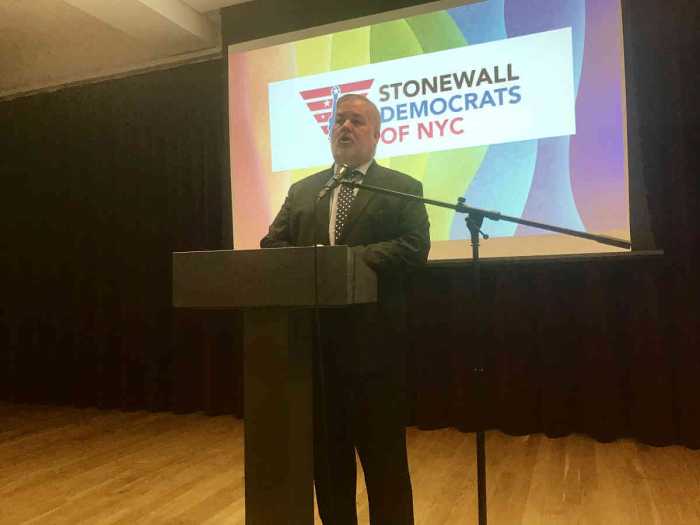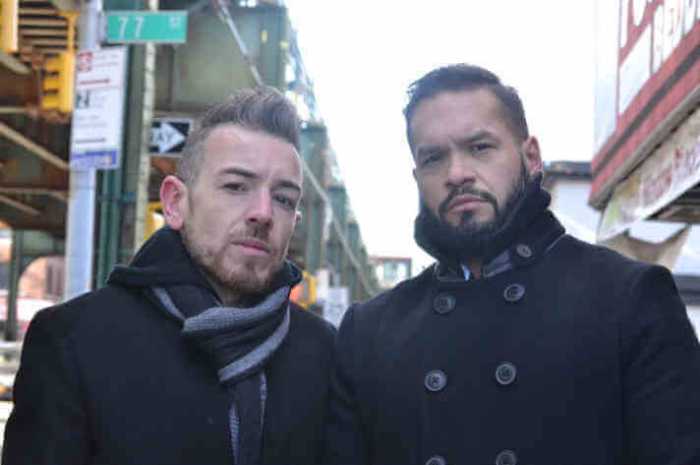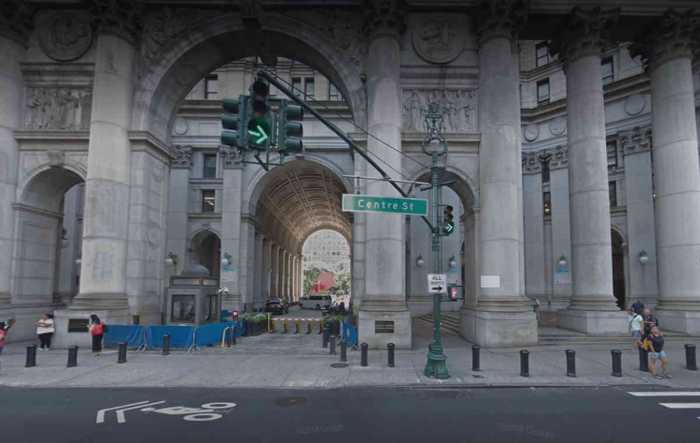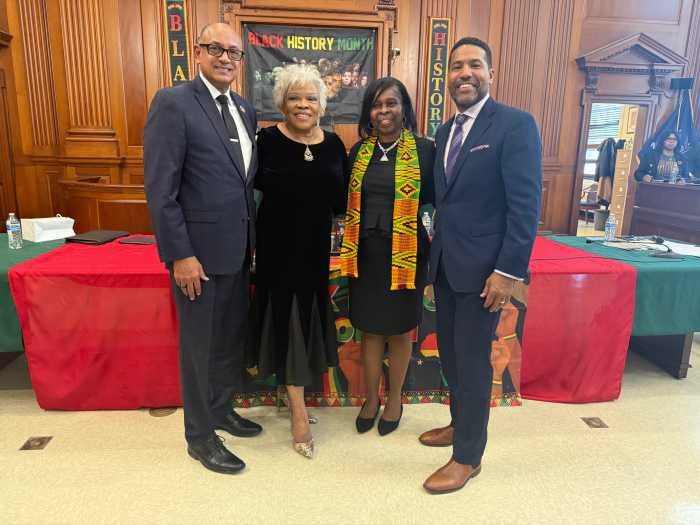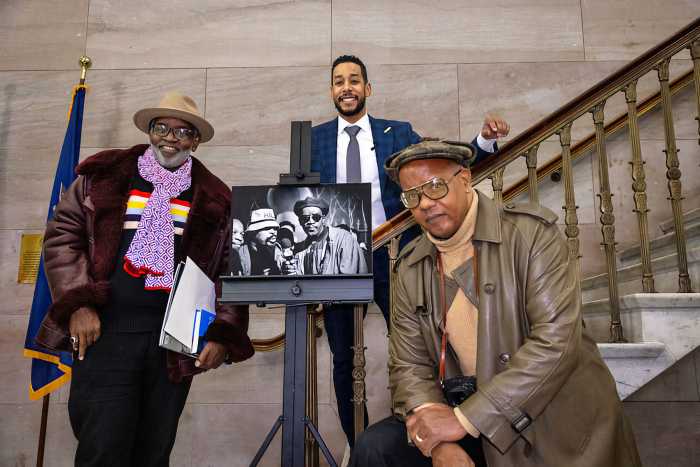BY NATHAN RILEY | Incarceration for low-level prostitution offenses is declining.
This was the news from a September 18 City Council oversight hearing on the Human Trafficking Intervention Courts that hear misdemeanor cases. Although the courts are a state function, New York City appropriated $750,000 to enhance the services offered by non-profits working within that system. Speaker Melissa Mark-Viverito spent two hours at the hearing, emphasizing the importance she attaches to these issues.
The courts have succeeded in altering the way sex workers are treated after an arrest. Gone are the days when a judge uttering crude jokes would provoke ribald laughter shaming those arrested.
Advocates, however, argue law enforcement reforms still assume prostitution is a “disease”
Still, sharp differences remain between agents for the legal system and advocates for sex workers’ rights. Before the hearing, Red Umbrella Project (RedUP) registered its protest on the steps of City Hall. The group, which chanted, “jobs, not jail; housing not counseling,” is made up of sex workers who object to being arrested and then told to give up their livelihoods.
The contrast in perspective between the two side couldn’t be any starker. As their name suggests, Human Trafficking Intervention Courts are based on a model that views sex work as the exploitation of women at the hands of pimps and abusers who inveigle women with tricks and coercion into a life of misery. These women are viewed as the bottom of a totem pole, manipulated by powerful and callous people who sponge off their earnings. That exploitation notwithstanding, however, law enforcement sees hookers as players in a vast criminal enterprise, often international in scope, that must be combatted.
From its vantage point, RedUP says sex workers do the work they do for the same reason anybody seeks out a job –– the money. They learn about the work from their friends, especially if they are homeless, and find a way of earning a living where no one asks for their address, their age, or if they have previous experience. The barriers that can impede legal employment don’t exist for sex work. These workers learn skills related to attracting clients, including appropriate dress and make up and careful hygiene. It can be preferable to waking up to an alarm clock, hurriedly getting dressed, punching a clock, and putting on a uniform at a fast food joint besieged by indifferent if not down-right unhappy customers.
One attraction of sex work is the independence; you are your own boss. True, it may often not be fun, but work seldom is. Dangers exist, but that is true for non-union construction work and in pulling double shifts as a truck driver. The poor –– and many in better economic shape –– are seldom in a position to question their working conditions.
As part of the current effort to help those arrested for sex work, the trafficking court offers counseling in return for the eventual dismissal of the criminal charges. It’s a “rescue” model where women are expected to give up sex work, while incentives like housing and a good paying job are rarely offered. If those who receive counseling and have their charges dismissed are rearrested, more counseling is mandated.
“Most importantly,” the City Council’s report asserts is establishing “trusting relationships between victims to aid in prosecuting those responsible for their sexual exploitation.”
But advocates for sex workers’ rights assert that mandating counseling through arrests is demoralizing. Audacia Ray, the founder and director of RedUP, argues that the concern evinced by the trafficking court is only skin deep.
“They are still treating sex work as a disease,” she said. Sex workers, in a society that stigmatizes and shames, need the “support of people who share their reality.” Her organization of sex workers and former sex workers offers a safe space for expressing their needs and gaining the skills “to share their reality with people in power.”
One skill for which training is offered is talking to the media.
Even if the approach now taken by the trafficking court offers a modicum of respect, the NYPD seemly clearly outside of that loop.
Shagasyia Diamond, a speaker at the RedUP protest, shared a bitter story of her arrest with the New York Times, saying that as “a transgender woman, she was subjected to a strip search by a male officer, placed in a cell for men as other inmates heckled her and used the exposed toilet in her presence.” When she objected, an officer taunted her, “You know you like it in there with all the men.” Throughout the arrest “officers snickered calling her ‘tranny’ and ‘it,’” Noah Remnick reported.
In riveting testimony before the Council, a staff attorney at the Bronx Defenders belittled the notion that arrests are “a positive way” to help sex workers.
“The assumption is false and grossly distorts the trauma of an arrest,” testified Avery McNeil, who said sex workers are “humiliated.” McNeil added, “They have been pulled off the streets in handcuffs, shoved in the back of a paddy wagon, forced to ride around in handcuffs for hours.” At the precinct, she said, “they are packed into cells and subjected to harassment and threats of physical and sexual violence.”
Despite the distance between sex workers’ advocates and law enforcement, a conversation has begun to take place between the two sides. Council members voiced a commitment to engendering respect for the sex workers and not perpetuating myths that cater to the public’s prejudices and disgust. The Joint Report by the City Council Committees on Courts and Legal Services and the Committee on Women’s Issues makes note of RedUP’s work and attempts to address some of its concerns.
Carlos Menchaca, an out gay Council member from Sunset Park, Gowanus, and Red Hook, attended the RedUP rally and thanked the group for “elevating” the dialog.
Councilmember Ben Kallos, who represents the East Side of Manhattan, said the September 18 hearing was the start of a dialogue that will may lead to judges providing specific feedback on the jobs and housing that “people who interact with the court need.” Lack of economic support for people who choose sex was “the big problem identified” by RedUP, he said. Getting city funds allocated to meet that need will require “that other groups speak up, including the readers of Gay City News,” Kallos said.




